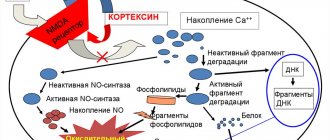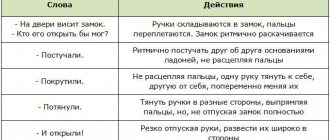Dizziness is a term used to describe the sensation of the body spinning and becoming unstable. Dizziness is one of the most common reasons why adults seek medical attention, as is chest pain or fatigue.
Although frequent dizziness or constant dizziness can significantly disrupt the patient’s normal life, nevertheless, this symptom is rarely a sign of a serious life-threatening illness for the patient. Treatment for dizziness is directly related to the cause and is usually quite effective.
Symptoms
Dizziness can usually be described as:
- Sensation of a feeling of movement or rotation
- Lightheadedness or feeling of fainting
- Loss of balance or instability
- Other sensations such as floating or heaviness in the head
A number of medical conditions can cause the feeling of dizziness. In some diseases, there is a disruption in the transmission of nerve impulses from one or more sensory systems to the brain, which leads to incorrect analysis of the information received. These disorders may affect the following sensory systems:
- Eyes that help determine the location of the body in space and its movement
- Sensory nerves (proprioception), which send messages to the brain about body movements and positions in space
- The inner ear, which contains sensors that help sense gravity and reciprocating motion
Some types of dizziness require immediate medical attention.
These are the following conditions accompanied by dizziness:
- Traumatic brain injury
- Sharp, severe headache
- Neck stiffness
- Blurred vision
- Severe acute hearing loss
- Speech disorders
- Weakness in a leg or arm
- Impaired consciousness
- Gait disturbance or falling
- Chest pain or heart rhythm disturbances.
Dizziness due to circulatory disorders and the best remedies
The phenomenon of dizziness can occur due to impaired blood circulation in those areas of the cerebral cortex that are responsible for balance. This occurs in cases where a person suffers from various diseases. Pathological conditions such as atherosclerosis, stenosis, deformation of the vertebral arteries, arterial hypertension require treatment with medications; doctors prescribe medications and the appropriate dosage, which depends on the general condition of the patient.
Vinpocetine
Other names: Cavinton, Karsavin, Telektol.
The product has contraindications. These include severe arrhythmias and the acute phase of hemorrhagic stroke. The medicine should not be given to children under 18 years of age, pregnant women and nursing mothers. Side effects: headaches, low blood pressure, dry mouth, discomfort in the stomach.
Vinpocetine
Advantages:
- high efficiency.
Flaws:
- Dispensed only with a doctor's prescription.
Cinnarizine
The drug dilates small blood vessels in the brain, resulting in improved blood circulation, relief from headaches, disappearance of tinnitus, and increased cell resistance to hypoxia. The dosage and need for use are prescribed by the doctor. People prone to allergies can use the medicine as a mild antihistamine. The most common side effects are drowsiness, fatigue, and digestive disorders. Pregnant and nursing mothers should not use the drug. Analog: stugeron
Cinnarizine
Advantages:
- improved blood circulation;
- high efficiency.
Flaws:
- No.
Tanakan
The product is made on the basis of Ginkgo Biloba extract. The risk of side effects is minimal due to the fact that the drug is based on herbal raw materials. Regular use normalizes vascular tone, improves blood circulation, and increases brain metabolism. Antioxidant properties help improve immunity. The drug is used on the recommendation of a doctor. The duration of treatment is from 1 to 3 months.
The drug should not be used by people with erosive gastritis, gastric and duodenal ulcers during an exacerbation. It is also not recommended for use during pregnancy and breastfeeding. The product may also be harmful to children under 18 years of age and patients with reduced blood clotting. Side effects manifest themselves mainly only in the form of allergies. It is not recommended to use the drug for a long time, as blood clotting may decrease, headaches may become more frequent, and tinnitus may appear. On the digestive side, nausea, vomiting, and sometimes diarrhea may occur. Do not drive or do work that requires concentration after taking the product. A similar drug is Memoplant. There are no reported cases of overdose, so it is not clear what the consequences might be.
Tanakan
Advantages:
- vegetable origin;
- without a prescription.
Flaws:
- contains ethyl alcohol;
- reduces blood clotting.
Causes
Inner ear and body balance
The type of dizziness—such as a feeling of dizziness, a feeling of lightheadedness, or a feeling as if the body is out of balance—often provides clues as to the possible causes of this sensation. Specific triggers, such as certain activities or positions, may provide clues to the underlying cause of dizziness. The duration of any episode of dizziness and any additional symptoms that a person experiences can also help determine the actual cause.
Vertigo
Vertigo most often occurs as a result of an episode or temporary change in the activity of the vestibular structures of the inner ear (vestibular apparatus) or due to a disruption in the interaction of structures in the brain responsible for balance. These sensory analyzers sense movement and changes in head position. Rising from a position, sitting, or moving around the room may make dizziness worse. Sometimes the dizziness can be severe, leading to nausea, vomiting and problems with body balance. But vertigo usually does not last long. After 2-3 weeks, the body usually adapts to whatever makes a person dizzy.
Causes of dizziness may include:
- Benign paroxysmal positional vertigo (BPPV). BPPV causes intense, brief episodes of dizziness immediately after a change in head position, often when a person turns over in bed or sits at a desk in the morning. BPPV is the most common cause of dizziness.
- Inflammation of the inner ear. Signs and symptoms of inflammation of the inner ear (acute vestibular neuritis) include the sudden onset of intense, persistent dizziness that lasts for several days, along with symptoms such as nausea, vomiting and balance problems. These symptoms may be so severe that the patient must remain in bed. When these symptoms are combined with sudden hearing loss, the condition is called labyrinthitis. Fortunately, vestibular neuritis usually subsides quickly and recovers on its own. But earlier drug treatment and vestibular rehabilitation therapy can help speed up the recovery process.
- Meniere's disease. This disease is associated with excess fluid accumulation in the inner ear. This condition is characterized by sudden episodes of dizziness, lasting up to several hours, associated with episodes of hearing loss, ringing in the ears, and a feeling of fullness in the affected ear.
- Vestibular migraine. Migraine is more than just a headache. Just as some people with migraines experience a visual “aura,” other patients may have episodes of dizziness due to migraines even when they do not experience severe headaches. These episodes of dizziness can last from hours to days and may also be accompanied by headaches and sensitivity to light and noise.
- Acoustic neuroma. This disease is a benign tumor (schwannoma) of the auditory nerve, which connects the inner ear to the brain. Symptoms of an acoustic neuroma usually include progressive hearing loss and tinnitus, on the one hand, which is accompanied by dizziness or imbalance.
- Other reasons. Rarely, dizziness may be a symptom of a more serious neurological condition such as a stroke, brain hemorrhage or multiple sclerosis. In such cases, other neurological symptoms are present, such as double vision, speech disturbances, changes in facial expression or numbness, loss of coordination in the limbs, or severe problems with body balance.
Feeling of "lightheadedness"
Dizziness can lead to a feeling of weakness and “lightheadedness,” without loss of consciousness. The feeling of lightheadedness is sometimes accompanied by nausea, paleness and clammy skin. Causes of this type of dizziness include:
- Decreased blood pressure (orthostatic hypotension). A sudden drop in systolic blood pressure can lead to dizziness or a feeling of lightheadedness. This can happen after a sudden change in body position, such as getting up from a chair.
- Insufficient blood output from the heart. Certain conditions, such as diseases of the heart muscle (cardiomyopathies), abnormal heart rhythms (arrhythmias), or a significant decrease in the volume of circulating blood, can cause inadequate blood flow from the heart.
- Balance imbalance
Impaired balance manifests itself as a feeling of instability when a person walks. Reasons may include:
- Problems in the inner ear (vestibular). Pathological processes in the inner ear can cause a person to feel unsteadiness when walking, especially in the dark.
- Sensory impairments. Visual impairment and peripheral neuropathy (in the lower extremities) are common in older adults and can lead to problems maintaining body balance.
- Joint and muscle problems. Muscle weakness and osteoarthritis can contribute to poor balance, especially if there are problems in large weight-bearing joints.
- Neurological conditions. Various neurological diseases can lead to progressive imbalance, such as Parkinson's disease and cerebellar ataxia.
- Medicines. Balance problems can be a side effect of certain medications, such as anticonvulsants, sedatives, and tranquilizers.
- Other types of dizziness
Other nonspecific sensations of “dizziness” are those sensations that the patient finds it difficult to describe and perceives as rotation or floating. Some causes of such dizziness include:
- Medicines. Antihypertensives may cause weakness if they significantly lower blood pressure. Many other medications can cause a non-specific feeling of dizziness, which disappears when the drug is stopped.
- Diseases of the inner ear. Some inner ear diseases can lead to a constant feeling of dizziness.
- Neurotic disorders. Some neurotic disorders, such as panic attacks and fear of leaving the house or being in open spaces (agarophobia), can also trigger dizziness.
- Low hemoglobin levels (anemia). Along with dizziness with anemia, as a rule, other symptoms are present, such as fatigue, weakness, and pale skin.
- Low blood sugar (hypoglycemia). As a rule, hypoglycemia occurs in diabetic patients with an overdose of insulin. Dizziness due to hypoglycemia may be accompanied by symptoms such as sweating and confusion.
- Ear infections. Ear infections can cause dizziness in some cases. This type of dizziness disappears once the infection is eliminated.
- Overheating and dehydration. If a person is active in hot weather, or if they do not drink enough fluids, the person may feel dizzy from overheating (hyperthermia) or from dehydration. Resting in a cool place and drinking water usually relieves the feeling of dizziness.
- Chronic subjective dizziness. It is a specific clinical syndrome characterized by persistent nonspecific dizziness that has no obvious medical cause. Chronic subjective dizziness is associated with increased sensitivity to one's motor functions. This type of dizziness is exacerbated by exposure to complex visual environments (such as a grocery store), visual movement (such as watching a video), visual imagery, and precise visual tasks.
Pharmacotherapeutic assistance for dizziness
Dizziness - a violation of the body's orientation in space - has probably been experienced by every person at least once in his life.
This health disorder occurs when the information entering the brain from the vestibular analyzer does not correspond to the information received from other systems involved in maintaining balance. The patient’s perception of dizziness can be different: it may seem to him that the ground is disappearing from under his feet, that he himself or surrounding objects are spinning, etc. Although not an independent disease, dizziness can occur as a symptom in 80 different diseases. Moreover, about 40% of cases of visits to a doctor regarding this disorder are not accompanied by a specific diagnosis. To identify the “root of evil” in dizziness and choose the optimal treatment regimen, it is necessary to carefully study the circumstances under which it first arose in the patient, establish the frequency and duration of attacks, and find out the accompanying symptoms. The relationship between the duration of paroxysms of dizziness and the pathologies that cause these attacks is reflected in the table.
Symptoms and pathogenesis
Symptoms that allow us to draw conclusions about the pathogenetic causes of dizziness are extremely diverse. One of the most common accompanying complaints in patients is hearing impairment. Negative signs such as humming or buzzing, whistling, a feeling of fullness in the ears, and deafness indicate a pathology of the inner ear or vestibulocochlear nerve. Dizziness is most severe when the peripheral part of the vestibular analyzer (part of the inner ear) is affected, accompanied by pallor, sweating, nausea and vomiting. Unilateral hearing loss may be a sign of damage to the vestibulocochlear nerve. Detected distortions in the perception of sounds often indicate damage to the cochlea.
Pain , purulent discharge from the ear in combination with dizziness are symptomatic “markers” of purulent otitis. It should be noted here that a targeted questioning of the patient helps to identify the connection between dizziness and the use of ototoxic drugs, such as, for example, aminoglycoside antibiotics (streptomycin, gentamicin, etc.). With some drugs, ototoxicity does not appear until several weeks later. The main complaint in this situation may be ataxia (disturbance in movement), worse in the dark (for example, when the patient gets up in the middle of the night) or when the patient closes his eyes. In such patients, in addition to complaints of dizziness, there may be a complaint of hearing loss. Clinical examination reveals ataxia that worsens with closed eyes.
Dizziness often accompany diseases of the heart and blood vessels. Thus, non-systemic dizziness is one of the symptoms of anemia, internal bleeding, orthostatic hypotension, arrhythmia, etc. Here it is appropriate to say a few more words about non-systemic dizziness associated with taking a number of medications. In some patients, this condition occurs during treatment with the already mentioned gentamicin and streptomycin, as well as a number of other drugs: kanamycin, tetracyclines, MAO inhibitors, salicylates (in large doses), ganglion blockers, diuretics, antihypertensive drugs, nitroglycerin, anticonvulsants, phenothiazine, barbiturates, quinine, quinidine.
Returning to the cardiovascular “roots” of the pathology, it should be noted that atherosclerosis and arterial hypertension are common etiological factors of vestibular vertigo . Often, however, this pathological condition is also caused by diseases of the musculoskeletal system, for example, cervical osteochondrosis.
But with diseases of the central nervous system, dizziness is often combined with a feeling of weakness and numbness in the limbs, with problems with swallowing and speech. Fainting due to dizziness requires the exclusion of paroxysmal arrhythmia. Sometimes vertigo can be accompanied by nystagmus (involuntary, repetitive eye movements).
Dizziness is also one of the complaints most often presented by patients with psychogenic disorders. Dizziness can occur after severe stress. In such cases, organic lesions disappear, leaving the phobic syndrome as the only symptom. Patients with these disorders experience daily disturbances from all sensory stimuli. They become visually dependent, i.e. any kind of movement brings them suffering and forces them to close their eyes or seek stability by clinging to solid objects. This disorder can be corrected with general therapy, including vestibular rehabilitation. Difficulties arise when prescribing tranquilizers to a patient, even in small doses, due to the patient’s frequent disagreement with such treatment. It is also not easy to convince a patient to meet with a psychotherapist due to the negative perception of this approach to the disease. Therapeutic success usually occurs only after 6 months. - 2 years.
Diagnosis and treatment
We smoothly move on to the problem of dizziness therapy . Regarding this issue, it should be remembered that the system of maintaining balance is based on the interaction of three sensory systems: the organs of vision - the inner ear - the musculoskeletal system. At a young age, disruption of one system can be compensated by the normal functioning of another. However, sensory systems weaken with age, and the further they go, the more difficult it is for them to cope with additional loads. In addition, various pathological processes develop in the body of an elderly patient that can disrupt certain functions. Together, all this weakens the equilibrium system. This is why older patients need comprehensive treatment for dizziness (for example, vision correction can lead to restoration of the balance system).
In diagnosing the causes of dizziness, a large role is given to the timely identification of early forms of chronic cerebrovascular accidents - the initial manifestations of insufficiency of blood supply to the brain (IBC), the high prevalence of which is evidenced by numerous clinical and epidemiological studies. Increasing manifestations of NPNCM lead to the development of discirculatory encephalopathy - a gradually progressive organic change in brain tissue due to chronic cerebral vascular insufficiency, in which the severity and frequency of dizziness increase significantly.
How is drug therapy for discirculatory encephalopathy ? To correct arterial hypertension, the most common cause of this “dizzying” pathology, the use of ACE inhibitors, β-blockers, calcium antagonists, and diuretics is effective (the choice of drug group and dose selection is individual). Correction of hyperlipidemia, another common factor in dyscirculatory encephalopathy, is carried out using diet and taking lipid-lowering drugs. Correction of rheological blood parameters is carried out by individually varying the dosages and tactics of using acetylsalicylic acid, ticlide and other antiplatelet agents.
Long-term maintenance therapy is recommended using cerebral vasodilators, for example, vinpocetine (Cavinton), which helps not only to eliminate dizziness, but also to exhibit a number of neuroprotective effects: improving memory, stabilizing the emotional-volitional sphere, reducing the severity of asthenia, cephalgia, vestibulo-cerebellar disorders. The drug is prescribed in a dose of 5-10 mg (1-2 tablets) 3 times a day, for a long time.
Patients whose dizziness is associated with myofascial syndrome are helped by drugs from the group of nonsteroidal anti-inflammatory drugs (NSAIDs).
Among the drugs that affect the state of the vestibular apparatus ( vestibulometric drugs ), the following can be prescribed:
- blockers of slow calcium channels - cinnarizine (Stugeron), prescribed 25 mg 3 times a day for a long time, or flunarizine (5 mg 3-4 times a day);
- centrally acting antiemetic thiethylperazine (Torekan) - 6.5 mg 3 times a day;
- H1-histamine blocker dimenhydrinate (Dramina, Ciel) - 50 mg 1-3 times a day.
Some patients benefit well from the tranquilizer diazepam (Relanium, Seduxen), used both to relieve attacks of dizziness (chew 1 tablet - 5 mg) and to prevent them (1/2-1 tablet 1-3 times a day).
An effective remedy for relieving acute attacks of dizziness , as well as for long-term maintenance therapy, is Betaserc (betahistine dihydrochloride), a histamine H3 receptor antagonist. In case of an acute attack of dizziness, it is recommended to take 16-24 mg of the drug, which is available in three dosage variations - in tablets of 8 mg, 16 mg and 24 mg. Usually the attack stops after 30-45 minutes. after reception. Maintenance dose - 16 mg 3 times a day for a month, then 8 mg in the morning and evening. The drug is contraindicated for gastroduodenal ulcers, bronchial asthma in the acute stage, pheochromocytoma, individual intolerance.
For dizziness, it is possible to use antihistamines that suppress the activity of the labyrinth. In addition to the already mentioned dimenhydrinate, this is meclozine (25 mg 4 times a day) or promethazine (25 mg 2-3 times a day or 2 ml intramuscularly).
Among the drugs that normalize blood supply and energy processes of vestibular neurons, when treating patients with dizziness, doctors often prescribe the drug Tanakan. In its active basis, it contains three key fractions of biologically active substances of the ginkgo biloba plant:
- flavonoid glycosides, exhibiting antioxidant effects, stabilizing cell membranes, suppressing platelet aggregation;
- terpene substances that regulate the tone of arteries, capillaries and veins;
- organic acids that increase the activity of flavonoids and terpenes.
Thus, Tanakan improves cerebral circulation and the supply of oxygen and glucose to the brain, exhibits a vasoregulatory effect on the entire vascular system, reduces blood viscosity, has an antihypoxic effect on tissues, etc. The drug is prescribed in a dose of 40 mg (1 tablet or 1 ml of drinking solution) 3 once a day for 2-3 months. Currently, Tanakan is actively used by pediatric neurologists.
In case of relapses of vestibular vertigo, repeated Tanakan courses are prescribed, as well as special vestibular gymnastics.
Source: magazine “Russian Pharmacies” No. 16 2007.
Risk factors
Factors that may increase your risk of developing dizziness include:
- Age. People over 65 years of age are more likely to have medical illnesses that cause dizziness. They are also more likely to take medications that can cause dizziness.
- Taking certain medications. Some medications, such as blood pressure medications, anticonvulsants, sedatives, and tranquilizers, may cause dizziness.
- Previous episodes of dizziness. If a person has experienced dizziness before, then the likelihood of repeated episodes of dizziness is higher.
What is the real cause of dizziness?
Dizziness is also called “vertigo”. When this condition occurs, it seems to a person that all objects around him begin to move or rotate. He loses his support and stands unsteadily, as if he had been on a carousel for a long time. Many people confuse true dizziness with weakness, when a sudden movement, as if “leading somewhere to the side,” creates a desire to find support and hold oneself. “Vertigo” is a serious disease that does not leave a person, even if he is in a lying, quiet position. The disease may be associated with diseases of the nervous system or vestibular apparatus. Coordination of the patient’s movements is carried out not only by the brain, which receives a picture of the position of objects in space through visual perception. Coordination receptors pass throughout the body, even on the internal organs, so when dizziness occurs, nausea and vomiting occur.
Diagnostics
Diagnosis begins, first of all, with a consultation with a doctor. The doctor may be primarily interested in answers to the following questions:
- Is the dizziness continuous or sporadic?
- If the dizziness occurs in episodes, how long did the episode last?
- How often do episodes of dizziness occur?
- What triggers episodes of dizziness?
- Does the sensation of spinning, moving around, or spinning your body itself make you dizzy?
- Is dizziness accompanied by a feeling of weakness?
- Does dizziness cause imbalance?
- Is dizziness accompanied by ringing, a feeling of fullness in the ears, or hearing loss?
- Are there any visual impairments?
- Does dizziness get worse when you change your head position?
- What medications, vitamins, or nutritional supplements is the patient taking?
The doctor thus narrows down the range of conditions that may be causing dizziness. A neurological examination helps identify the presence of neurological symptoms. After a physical examination, your doctor may prescribe additional tests.
- Eyeball movement test. The doctor may observe the movement of the patient's eyeballs while tracking a moving object. In addition, a test may be performed where cold or warm water is poured into the ear and eye movements are observed.
- Posturography. This method allows you to determine which parts of the balancing system are out of order.
- Vestibular testing also allows you to determine the degree of stability of the vestibular apparatus.
In some cases, magnetic resonance imaging (MRI) may be needed. An MRI may be done to rule out acoustic neuroma or other problems in the brain that may be causing the dizziness.
Laboratory research methods are necessary in cases where there is suspicion of somatic diseases (for example, anemia).
The best drugs for dizziness with neck muscle spasms
With a spasm of the neck muscles, not only can the blood flow in the vessels supplying the brain be disrupted. The spasmodic area itself creates a powerful flow of pathological impulses, discoordinating the work of some centers.
Diagnoses that a doctor can make:
- osteochondrosis (for many years doctors have been arguing whether this diagnosis has a right to exist, but for now it persists);
- tension headaches,
- spondylosis.
Such dizziness is usually perceived not as objects spinning around, but as a kind of weakness, instability, instability of body position and a feeling as if everything is floating. In such cases, treatment is aimed at reducing muscle spasms and pain, restoring normal blood flow in spasmodic muscles.
Milgamma compositum
Rating: 4.6
The complex of vitamins B1, B6 and B12 together have an analgesic effect when it comes to neuromuscular pain. In addition, this complex helps restore the body’s antinociceptive (pain suppressing) system and the functions of nerve cells.
Take 3 tablets per day for 3 weeks, then 1 tablet per day for 2 to 3 months.
Of the possible adverse events, only allergic reactions are noted.
The drug is not recommended during pregnancy due to lack of safety data.
Possible analogues: combilipen.
Advantages
- high security,
Flaws
- No.
Katadolon
Rating: 4.2
Active ingredient: Flupirtine
Relaxes overly tense muscles, while simultaneously inhibiting pain centers in the brain, thus reducing the flow of pathological impulses. The drug is not addictive, so the course of treatment is not limited.
Side effects include weakness and drowsiness. Cannot be combined with alcohol. because the drug enhances the effects of alcohol.
Take 100 mg 3 times a day,
Contraindicated during pregnancy and breastfeeding, children suffering from alcoholism, severe liver failure.
Possible analogues: neudrodolone.
Advantages
- relieves muscle spasms
Flaws
- you can't drive
- prescription
Treatment
Treatment for dizziness depends on the cause and symptoms.
- BPPV. Treatment for BPPV involves a simple procedure in which a doctor or physical therapist performs a head repositioning maneuver. This procedure usually begins to work after one or two treatments.
- Diseases of the inner ear. Exercises to restore the vestibular system are used to treat acute vestibular neuronitis or labyrinthitis. To provide relief from nausea and dizziness, your doctor may prescribe medications such as meclizine (Antivert) and diazepam (Valium) or may recommend dimenhydrinate (Dramamine). In some cases, a short course of corticosteroids may be prescribed, which may improve vestibular function.
- Meniere's disease. Treatment of Meniere's disease involves reducing fluid in the body through the use of diuretics or dietary adjustments (reducing salt in food). Sometimes injections are given through the eardrum or surgery may be recommended.
- Vestibular migraine. To combat dizziness associated with vestibular migraine, it is necessary to identify and eliminate attack triggers by focusing on nutrition, stress, normal sleep and adequate physical activity. Some medications may help prevent vestibular migraine attacks or make them less severe, especially when there is nausea and vomiting. You can also perform special exercises that will help make the balance system less sensitive to movement (vestibular rehabilitation).
- Anxiety disorders. In such cases, both medications and psychotherapy may be recommended.
Treatment of dizziness
There are general principles of treatment, prevention and first aid for dizziness:
- Drug therapy, which usually includes angioprotectors (drugs that improve vascular function), neuroprotectors and neurotrophic drugs. In case of severe dizziness or fainting, it is better for the patient to immediately call an ambulance team and receive treatment in a hospital setting.
- Physiotherapy is equivalent in effect to drug therapy and is indicated for dizziness. It is usually prescribed in parallel with neurometabolic therapy, which significantly enhances the therapeutic effect in the treatment of dizziness and reduces the risk of recurrence of the disease. Significantly relieves the condition in a few sessions. Typically, a rehabilitation therapy doctor prescribes a course of ten procedures that must be attended daily or every other day.
- Neck massage and manual therapy can also sometimes be prescribed for dizziness.
- Osteopathic correction is prescribed with caution, as it may have contraindications for some disorders.
- Acupuncture - prescribed with caution, as it has many contraindications in the presence of dizziness.
- Contrast shower - as prescribed by a doctor.
- Exercise therapy - under the supervision of a doctor.
- Aerobic physical activity is strictly dosed.
Dizziness has become the norm today for city dwellers. The reason for this is most often not hereditary or vascular pathology, but our lifestyle and high psychophysical stress (stress). In addition, a sedentary lifestyle plays a big role in the development and manifestation of dizziness; computers, TV, smartphones, tablets and cars have become our constant companions.
Lifestyle
- The patient should be aware that dizziness can lead to loss of balance, which can lead to a fall and serious injury.
- You must try not to move abruptly.
- You need to get up slowly.
- Carpets or electrical cords must be removed from the room. Anti-slip mats should be used in the bathroom.
- If the patient feels dizzy, then it is necessary to sit or lie down.
- Driving a car or operating heavy machinery should be avoided if the patient experiences frequent dizziness.
- It is necessary to use good lighting on the stairs and where the patient walks at night
- When walking, use a cane for stability if necessary.
- Avoid the use of caffeine, alcohol and tobacco. Excessive use of these substances may worsen dizziness.









